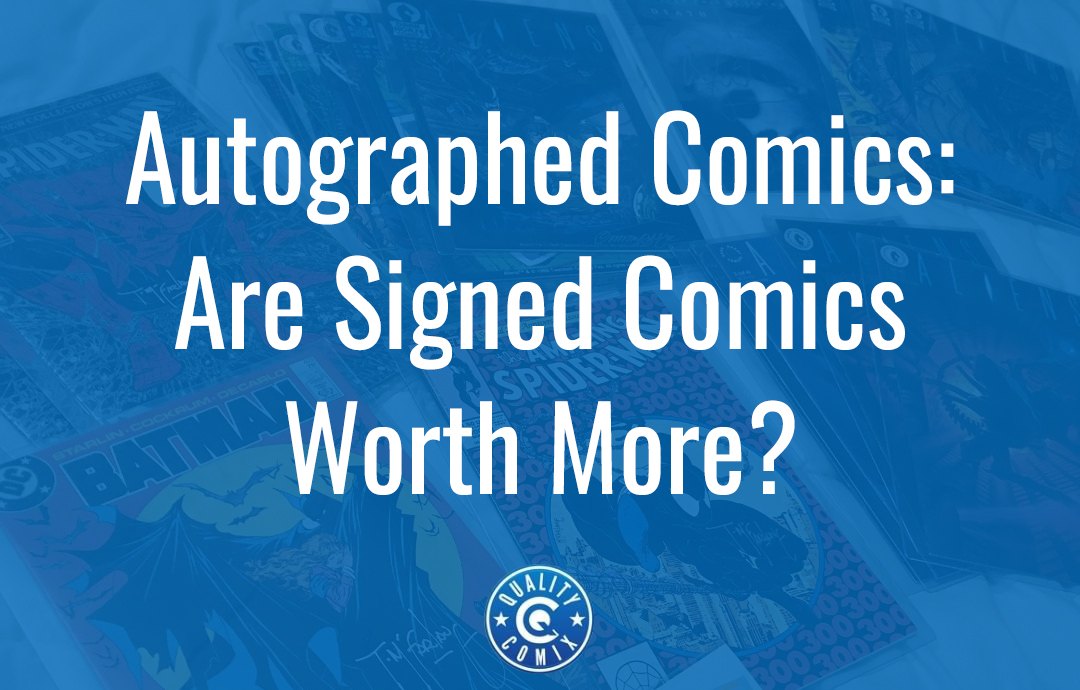
You see it time and again across all sorts of different collectibles and memorabilia: autographs. People bring their collectibles to conventions and public events to get them signed before bringing them home to stash away. Some people appreciate them as life-long fans; others plan it as an investment, with the autograph meant to increase the value of the item, separating it from all the other non-autographed copies.
The question is, is it really worth it? The answer may surprise you.
Table of Contents
- Is a Signed Comic Worth More?
- What Affects the Value of a Signed Comic?
- Is the comic valuable without the signature?
- Is the person who signed the comic noteworthy to the comic?
- Is the signature verified or authenticated?
- Is the signature personalized?
- Is the comic for your personal collection or for investment and resale?
- Is there an audience of potential buyers for the signature?
- Selling Your Valuable Comics
Is a Signed Comic Worth More?
Let's start off with a simple answer: yes and no.
Okay, not so simple.
The truth is that whether or not a signature increases the value of an item depends immensely on several different factors.
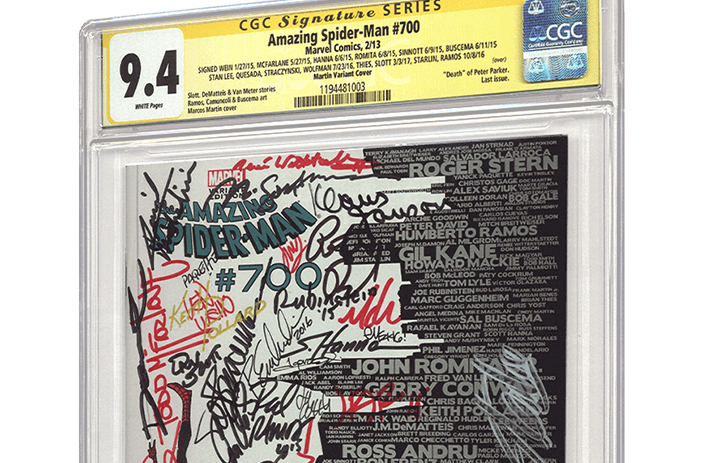
The two biggest are these:
- Is the signature verified?
- Is the person who signed it noteworthy?
If someone hands you a copy of a comic and tells you it's signed by Stan Lee, you'll probably believe them because Stan Lee signed thousands of comics. If it was signed by someone less public or more reticent to sign anything, the signature is rarer and might require more validation. Unfortunately, fake autographs are common in all kinds of memorabilia and collectibles, particularly with popular signatures like Lee's, so many common examples exist to copy that it's almost trivial to do.
Now, if someone handed you a copy of a comic and told you it was signed by Dan Buckley, you might ask, "Who?" Dan is the current President of Marvel. He's undoubtedly involved in the industry, but his autograph very likely isn't worth much of anything to anyone but the people who cash his checks.
The simple answer is "it depends" or maybe "sometimes." So, let's go through the list of various factors and why they matter to autographs for comics.
What Affects the Value of a Signed Comic?
A large part of the value of a signature is contextual, so let's go into the context and why it matters.
Is the comic valuable without the signature?
This is a big one. There's a huge world of difference between getting Captain America #1 signed versus Captain America #1 (2018). One of them is worth six figures, and if a signature increases the value by even 1%, it's a significant increase. The other is a $1 book, and the signature adds nothing to it.
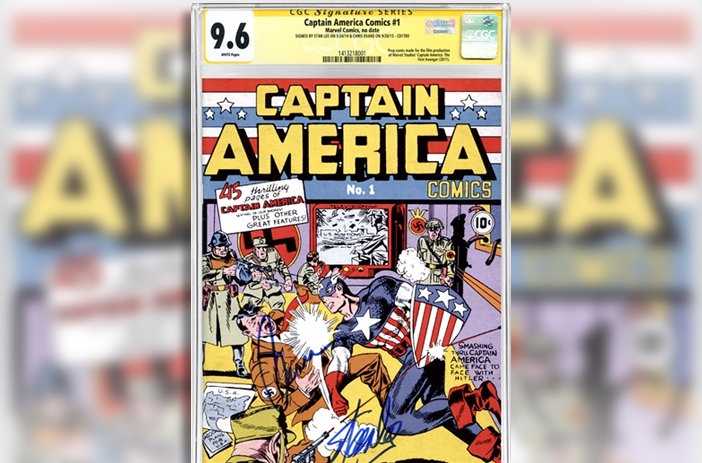
Now, technically, a signature will increase the value of even a $1 comic book. In fact, since many professional artists, writers, and comic creators charge for their autographs, many collectors deem that to be a direct value-add; in other words, if you spend $25 to get a $1 book signed, you want to sell it for at least $26 to make your money back, and ideally more so you can make a profit.
Now, can you sell that book for 26+ times what it's worth without the signature? Truthfully, probably not. In fact, it's fairly likely that you're going to lose money on the transaction if you can even sell it in the first place.
Is the person who signed the comic noteworthy to the comic?
I already talked about this one a bit above. Someone noteworthy to the creation of the comic versus someone who isn't.
Stan Lee is a great example. For decades, he was one of the biggest and most recognizable names in the entire comics industry. As such, he's been asked to sign just about everything there is to sign, from $1 books to teddy bears to six-figure comics to unique movie props and more. His signature holds some inherent value because of who he is, but it's only contextually relevant to certain items. The characters he created and the stories he wrote are where his value is most appropriate.
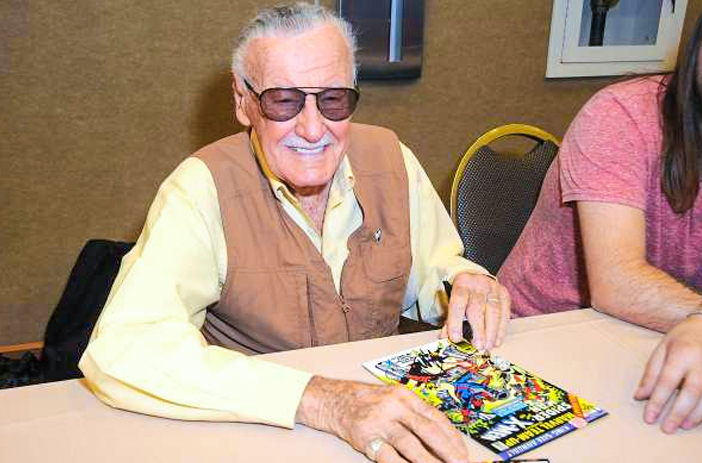
These days, comics are made by teams of people. You have the writer, but you also have copyeditors. You have the artist, but you also have inkers, colorists, and graphical designers in some cases. There are whole teams of people working on every page. It's one thing to get the signature of the artist or the writer; it's another to get a signature from the inker or the editor.
The exception here is the "whole team" signature; Getting the same comic signed by everyone involved in making the comic is much more of a labor of love than it is a cash grab.
Another factor here is how noteworthy the people involved in the comic are. Getting a comic signed by a big name like Jack Kirby is one thing; getting an indie comic signed by an author who wrote three comics and quit because they weren't very popular is a whole other situation.
Is the signature verified or authenticated?
This is another big one. Anyone can sign a comic. Anyone can write anything they want on a comic. Someone could spend a few hours practicing the right motions in the right way to add the right flare to a signature to make it look authentic, even though that person is very much not the person whose name they're signing.
There's an impression in popular culture, which has been pushed even more prominently with TV shows like Pawn Stars, that it's possible to have a "handwriting expert" come in and examine a signature, authenticate it, and declare it real (or fake.) This isn't really accurate or true.
Truthfully, there are some things you can do to analyze a signature and declare it fake. Examine it closely with a loupe, and if it's printed on, it's clearly not real. Examine the ink involved, and if it's a chemical composition that didn't exist when it was supposedly signed, it's probably fake. Things like that.
But the idea of being able to analyze handwriting and validate a signature is pretty well debunked. With a lot of training, two samples can be compared, and a reasonable guess can be made, but that's across larger writing samples, not signatures. Something as small as a signature can be much more difficult – to the extent of it being impossible – to validate after the fact.
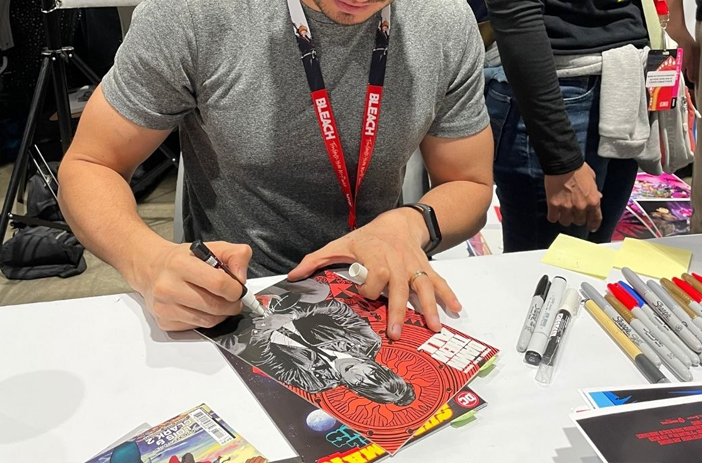
Today, verifying a signature involves one of three things.
- Photographic evidence of the person signing the comic.
- A validated certificate of authenticity for the case of pre-signed memorabilia.
- Someone present from a grading authority who can then immediately slab and label a comic as validated.
The third one is what most people who want signatures for investment purposes do. A representative from a company like CGC will usually attend conventions where signings take place, and they will witness the signature, take custody of the comic, and bring it back for grading, after which it will be given a Signature Series label.
One exception to this is PSA's DNA service, which does after-the-fact examinations of signatures to attempt to validate them. Unfortunately, they have a large history of denying the authenticity of valid signatures, so it's not a very reliable option.
What if you want a comic signed, but you don't want it slabbed? Well, you're largely out of luck. You'll know it's valid, but no one else will necessarily. You can take video evidence, but beyond that, you won't have much proof. As a buyer of a signed comic with unknown provenance, you're going to be skeptical.
Note: What is provenance? Provenance is the history of the item: where it came from, who has owned it, when and how it has changed hands, and so on. The provenance of a comic can be a big part of validating a signature; if it has changed hands numerous times, there's no telling where that provenance was lost. Some high-value items even have logs kept of their past owners for this very reason.
Is the signature personalized?
There's also a difference between a comic with "Stan Lee" written on the cover, and a comic with "To Charlie, from Stan Lee" written on the cover.
Personalization is great for the person the signature is being personalized for. Many comics authors will even include small customized sketches for exactly this kind of reason.
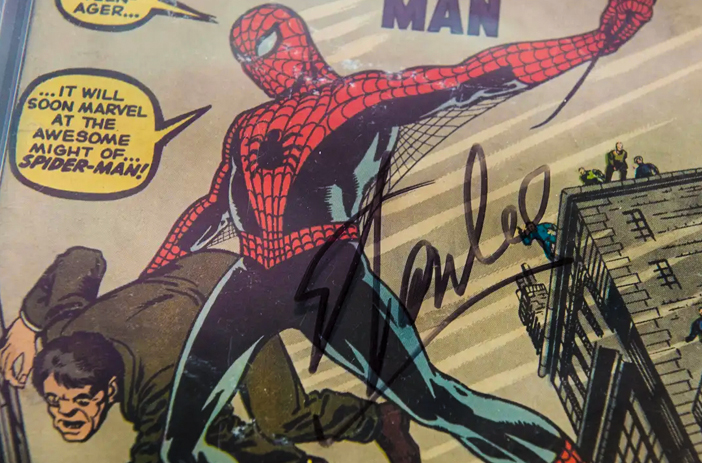
The trouble is, if the comic is being sold later, that personalization potentially even loses value. If you're not Charlie, do you want a comic personalized to Charlie as part of your collection? Maybe you value the signature enough to say yes, or maybe you don't.
Heck, even if you are named Charlie, you might feel weird about a comic that's personalized to someone with your name who isn't you. Then again, maybe you feel like it's divine providence and will want it even more. I'm not one to judge.
The exception here is if the signature is personalized to someone who is also noteworthy. The story alone can be worth an untold amount of money… but that's only if there's provenance and validity to that story. It's also so much rarer than a normal autograph that it's barely worth considering.
Is the comic for your personal collection or for investment and resale?
A big thing about autographs is that they aren't really about the autograph itself. They're about the personal experience of a fan meeting a creator they love, getting the chance to talk to them in person, interacting with them, and coming away with a story to tell. When a thousand people line up to shake hands and exchange pleasantries with Stan Lee, they don't have a whole lot of unique story to tell; his name carries weight, but he also flooded the market with his signature, so it balances out.
It's much more meaningful when it's someone you don't see everywhere, someone you can spend more time talking to. It's about the personal connection.
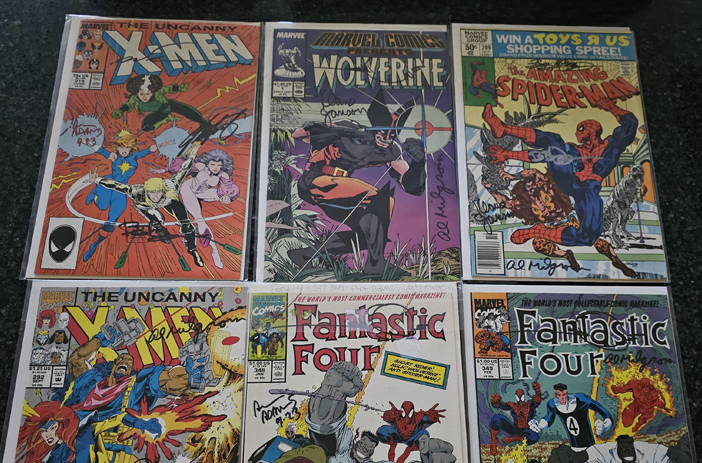
If you want to get an autographed comic for your personal collection, by all means, go for it! Resale value later should be the last thing on your mind.
If you're in it purely for the finances of increasing the value of your investment, though, it's definitely worth reconsidering.
Is there an audience of potential buyers for the signature?
I touched on this one a bit above, but it's always a good question to ask: who is buying this comic? High-value key issues signed by the writer and artist can be a huge value add. $1 comics signed by the editor and inker aren't likely to have much of an audience at all.
Truthfully, a majority of comics collectors aren't looking for signed copies of the comics they want. The audience for autographed comics is already smaller than the audience for the same comic without the autograph. When you factor in all the other considerations, well, you can see why it's difficult to say whether or not a comic will be more valuable with an autograph than without.
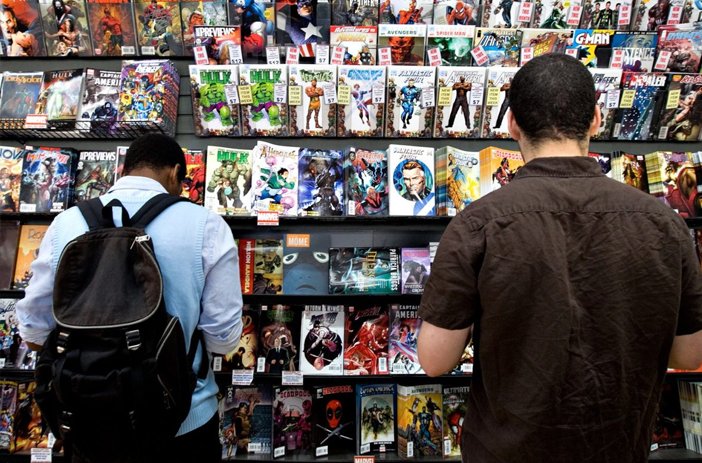
Remember, it all comes back to one thing: demand. The value of a comic is only what you can get someone to pay for it, so if there's no demand for that comic, that signature, or that combination of comic and signature, it's not worth anything.
A quick glance through social media echoes this sentiment. Many people have opinions like "an autograph should be for sentimental value" and "I don't like signatures so I wouldn't buy one, let alone for a premium."
Of course, a quick scan through comic resellers and eBay listings can show you signed comics listed for – and sometimes even selling for – values higher than an unsigned equivalent. When all the factors line up right, an autograph can add value to a comic. Even so, it's a risk; you might not be able to sell, or you might be able to sell for what you feel it's worth, or it might just take a long time to find the right buyer.
Selling Your Valuable Comics
Now, when you have valuable comics that you want to sell, with or without an autograph attached, you've come to the right place. We're one of the top dealers of valuable comics in the country, and we have a nice and easy page you can visit.

Whether you have a small handful of valuable books, a lifelong collection it's time to prune, or an inherited collection you just need out of your hair, we can help. Just click that link, fill out the form, and we'll get back to you ASAP with our evaluation, offer, and options for you. There are no obligations and no fees, so there's no risk to you! Why not give it a try?

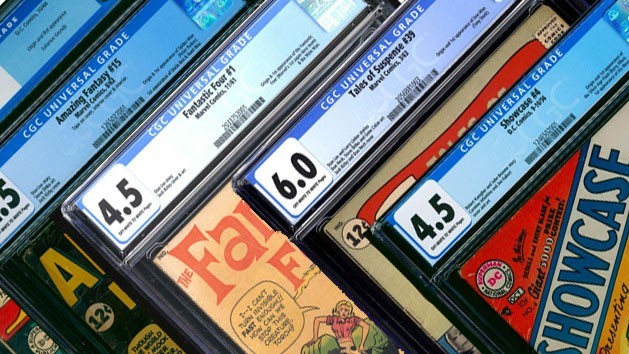

![[Guide] Where is the Best Place to Get Your Comics Graded?](https://www.qualitycomix.com/images/size_f/news-000079.jpg)